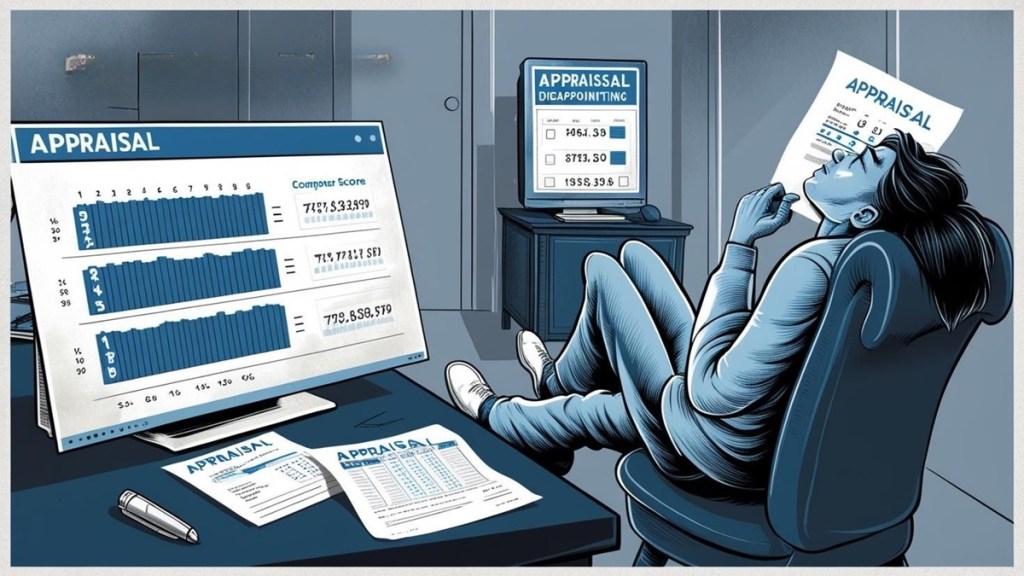By Sunder Ramachandran and Vivek Gambhir
Let’s say the moment has passed.
The appraisal conversation is done. The rating’s been locked. You try and walk out with a smile. You tell yourself, “It’s okay, maybe next year.” But deep down, you’re hurt.
You replay the year in your head. The late nights. The extra projects. The client you turned around. The team member you mentored. You check your rating again. It still says, “Meets Expectations.” Or worse. It’s hard not to take it personally.
The Appraisal Sting Is Real
Let’s not sugarcoat it, a disappointing rating stings. And in a tight job market, it stings even more.
You feel unseen. You second-guess your ability. You wonder if you belong. And if you’re early in your career, it can feel like the system is broken and the universe just hit “unfair mode.”
But here’s the perspective that’s helped us over the years and one we now share with every young professional we coach:
You are not your rating: Your rating is a data point, not a definition.
It compresses a whole year into a single phrase. That nuance, that extra mile, that recovery from a bad quarter? Often lost in translation. The rating often is influenced by more than just performance. Team budgets, forced distributions, manager biases, timing, all play a role in ways that are rarely transparent. The rating can’t fully measure potential, impact, or growth trajectory. And those are often the things that matter more in the long run.
So What ‘s Next?
Don’t Disengage: Yes, it’s tempting to pull back. To do the bare minimum. To mentally check out. We get it. But we’ve seen the most respected professionals bounce back by staying visible, consistent, and proactive, even after a poor rating.
Follow Up with Intent: Send a thank-you email. Summarize the feedback you received. Ask one specific question about how to improve in the next cycle. This shows maturity and helps you reframe the moment from defeat to development.
Look Beyond the Rating: Are you being asked to lead new projects? Is leadership reaching out to you for input? Are your teammates coming to you for advice? These are the real signals of value that no performance bracket can capture. Learn to spot them.
Ask – What Did I Learn and What Will I Do Differently: Every rating, good or bad, is feedback. Sometimes it’s a wake-up call about blind spots you’ve missed. Sometimes it’s just poor storytelling on your part. Either way, it can be the foundation for a better year ahead.
What Great Managers Notice (That Ratings Don’t)
Who keeps showing up, regardless of outcomes? Who owns their growth without being prompted Who supports their team under pressure? Who turns disappointment into action rather than complaint?
That quiet resilience? It adds up.
In fact, some of the best career growth we’ve seen including our own started with a disappointing rating that forced us to pause, reflect, and rewire how we showed up.
Finally, to the Managers:
To every manager reading this: if you’ve given a tough rating, own the conversation. Don’t hide behind the bell curve or “what leadership said.” Your team deserves transparency. And more importantly, they deserve to know that you believe in their ability to grow
The appraisal season comes and goes. But how you show up after it? That’s where character is built.
So if the rating hurts, feel it. Reflect on it. And then rise above it.
Because your worth was never up for debate.
Sunder Ramachandran and Vivek Gambhir are senior industry leaders. They are co-authors of HeadStart: Unlock the Secrets to Career Success (Penguin Random House), a practical playbook for young professionals navigating the early to mid-stages of their careers.
Disclaimer: Views expressed are personal and do not reflect the official position or policy of FinancialExpress.com. Reproducing this content without permission is prohibited.
